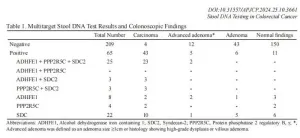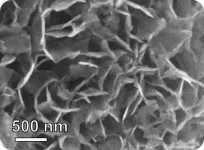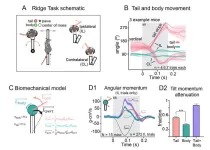(Press-News.org) Some patients being treated with immune checkpoint inhibitors, a type of cancer immunotherapy, develop a dangerous form of heart inflammation called myocarditis. Researchers led by physicians and scientists at the Broad Institute of MIT and Harvard and Massachusetts General Hospital (MGH), a founding member of the Mass General Brigham healthcare system, have now uncovered the immune basis of this inflammation. The team identified changes in specific types of immune and stromal cells in the heart that underlie myocarditis and pinpointed factors in the blood that may indicate whether a patient’s myocarditis is likely to lead to death.
Appearing in Nature, the results are among the earliest translational findings to come from the Severe Immunotherapy Complications (SIC) Service and Clinical-Translational Research Effort, which is based at Mass General Cancer Center and includes Broad researchers. Launched in 2017, this is a first-of-its-kind program in North America focused on improving the diagnosis, treatment, and understanding of serious immunotherapy complications, which can affect nearly every organ system. The team focused on myocarditis as one of their first research projects because despite being one of the rarer complications from immune checkpoint inhibitors (ICIs), it is the most deadly.
Importantly, these findings provide the first evidence for an immune reaction in the heart that is distinct from the immune response at the tumor, suggesting that targeted treatments might be able to address myocarditis while allowing patients to continue receiving potentially life-saving anti-tumor immunotherapy. The results also highlight possible therapeutic targets that bolster the rationale behind an ongoing clinical trial recently launched at MGH that is testing a drug for this kind of heart inflammation.
Roughly 1 percent of patients treated with an ICI — more than 2,000 individuals a year in the US — will develop myocarditis, and this number goes up to nearly 2 percent among patients treated with certain immunotherapy drugs in combination. Myocarditis leads to dangerous cardiac events such as arrhythmia and heart failure in 50 percent of cases, and about a third who develop the condition will die from it, despite current treatments. In addition, treatments and supportive care approaches used for other forms of myocarditis, such as viral myocarditis, don’t work for this type.
“We don’t have great solutions now to help these patients, so we try everything to shut down the immune system and reverse myocarditis, but that’s an imprecise approach that comes with its own risks,” said study co-senior author Alexandra-Chloé Villani, an institute member at the Broad, an investigator in the Krantz Family for Cancer Research and the Center for Immunology and Inflammatory Diseases at MGH, and an assistant professor of Medicine at Harvard Medical School who leads the translational research endeavors related to the SIC Service at MGH. “Our results provide a more detailed picture of what’s happening in the heart and suggest intriguing new ways forward to improve patient care.”
“Myocarditis from immune checkpoint inhibitors is a major hurdle for us clinically,” said co-senior author Kerry Reynolds, the clinical director of inpatient oncology at MGH, director of the SIC Service, and an assistant professor of medicine at Harvard Medical School. “This study is a game-changer, paving the way to unearthing the roots of these complications. We are incredibly grateful to each and every patient who partnered with us, all those involved in their clinical care, and the exceptional team in our lab who made this research possible.”
“This work provides a biological foundation for testing more targeted therapies for myocarditis due to an immune checkpoint inhibitor. This paper is a major step forward as we need to improve our understanding of this toxicity, and this will lead to improved outcomes,” said co-senior author Tomas Neilan, an associate professor of medicine at Harvard Medical School and director of the Cardio-Oncology Program and co-director of the Cardiovascular Imaging Research Center at Mass General.
Benefits and risks
Approximately one-third of patients with cancer in the United States are eligible to receive the revolutionary drugs known as immune checkpoint inhibitors (ICIs), which are part of the immunotherapy class of medicines that take the brakes off the body’s immune system so that it can fight cancer.
The threat of serious complications and the challenge of how to manage them is growing as more patients undergo ICI treatment each year. More than 230,000 patients in the US were treated with ICIs in 2020, and that number has likely grown since then as the FDA has approved more than 80 indications for these medicines. Most patients taking one or more ICI drugs will develop at least one form of toxicity and, depending upon the drug given, ten percent to more than 50 percent will develop a severe complication. The complications can be difficult to halt or reverse, even if the treatment is stopped, and patients can develop life-threatening organ inflammation after a single dose. Doctors currently don’t have effective targeted treatments, so they often have to stop the anti-tumor therapy or give large amounts of steroids, which have their own undesired side effects such as lowering the efficacy of the ICI anti-tumor treatment.
One of the more feared complications of immunotherapy, checkpoint myocarditis is significantly more dangerous for patients than myocarditis from other causes and it’s unclear why. “Since we first started seeing checkpoint myocarditis less than a decade ago, it’s largely been a black box,” said co-first author Daniel Zlotoff, a cardiologist and assistant in medicine at MGH and postdoctoral fellow in the Villani lab. “Only now are we starting to answer the fundamental biological questions, which we hope will shed light on the optimal treatments to make it more tolerable and improve outcomes for patients.”
In the new study, the researchers collected blood from individuals who developed myocarditis while on ICI therapy and consented to be part of the study, along with paired heart and tumor tissue from some. As patients underwent diagnostic procedures at the SIC Service, or after they succumbed to the illness, samples were taken and rapidly sent to the lab, where the research team performed single-cell RNA sequencing analysis along with microscopy, proteomic analysis, and T-cell receptor sequencing to identify cells involved in driving and sustaining the inflammatory processes associated with myocarditis.
In the heart tissue of patients, the team observed the upregulation of molecular pathways that help recruit and retain immune cells involved in inflammation. They also saw an increase in abundance of several immune cell subsets, as well as an increase in abundances of certain cellular groupings composed of specific cytotoxic T cells, conventional dendritic cells (cDCs), and inflammatory fibroblasts that were found together in the hearts of patients with active disease. In the blood, they found reductions in plasmacytoid dendritic cells, cDCs, and B lineage cells along with increased numbers of other mononuclear phagocytes.
The team also analyzed the T-cell receptor, a unique protein complex that binds and responds to foreign particles known as antigens. T-cell receptors abundant in the affected heart tissue were distinct from those seen in tumors, a result that is different from findings by other researchers which suggested that the immune responses in a patient’s heart and tumor were the same. The team also found no evidence for T-cell receptors recognizing the α-myosin protein, which was previously reported to be a pivotal antigen driving checkpoint myocarditis. These results suggest that the T-cell receptors most abundant in affected heart tissue recognize undetermined antigens. In future work, the researchers hope to identify the particular antigens at play in the heart and the tumor and discern whether they are normal proteins, mutated tumor proteins, foreign particles like viruses, or something novel.
“Because the responses in the tumor and the heart are different, it makes us hopeful that we can someday disentangle the two and treat them separately,” said co-first author Steven Blum, an oncologist at MGH and postdoctoral fellow in the Villani lab. “We’re especially grateful to the patients who are willing to participate. Ultimately, it’s the biggest gift that a patient can give to research.” The researchers acknowledge that the result was only possible with crucial contributions from MGH and Broad members who lead the Rapid Autopsy Program, developed by Dejan Juric, and the hospital's pathology team, notably James Stone.
The pattern of T cell subtypes in the blood also indicated which individuals were more likely to succumb to myocarditis, suggesting that a blood-based measurement could one day be used to flag patients who are at increased risk and should be monitored closely or avoid immunotherapy altogether. They also found T cells in the peripheral blood that originated in the heart and correlated with severity of disease. The findings open the door to developing a diagnostic blood test that could replace invasive heart biopsies for patients suspected of having myocarditis.
The work also lends support to an ongoing clinical trial (ATRIUM, NCT05335928) based at MGH exploring the use of an arthritis drug, abatacept, to control myocarditis in these patients. “We always want better patient outcomes, but we need hard evidence from clinical trials on how to resolve the inflammation while preserving anti-tumor responses,” said Reynolds. “These cell maps help guide us to what we should be studying in clinical trials.”
By treating and studying complications across different organ systems, the researchers hope to find both distinct and shared mechanisms that can shed light on adverse events that affect diverse parts of the body in these patients, often simultaneously. The researchers are also working to bring together other institutions that share the goal of improving immunotherapy and cancer patient care, and are providing guidance for similar efforts elsewhere.
“It’s important to remember that immunotherapy drugs are miracle life-saving medicines, and patients should not be afraid of them,” said Villani. “We just need to make them work better so that we can maximize their anti-tumor treatment benefit while minimizing the risk of adverse events.”
Other individuals leading the study include co-first authors Neal Smith, Isabela Kernin, and Swetha Ramesh, and co-senior author Molly Thomas.
***
This work was supported in part by the National Institutes of Health, the Damon Runyon Cancer Research Foundation, the Melanoma Research Alliance, the Mass General Hospital Transformative Scholar in Medicine Award, and the Howard M. Goodman Fellowship.
Paper cited
Blum S, Zlotoff D, et al. Immune responses in checkpoint myocarditis across heart, blood and tumour. Nature. Online November 6, 2024. DOI: 10.1038/s41586-024-08105-5.
About Broad Institute of MIT and Harvard
Broad Institute of MIT and Harvard was launched in 2004 to empower this generation of creative scientists to transform medicine. The Broad Institute seeks to describe the molecular components of life and their connections; discover the molecular basis of major human diseases; develop effective new approaches to diagnostics and therapeutics; and disseminate discoveries, tools, methods and data openly to the entire scientific community.
Founded by MIT, Harvard, Harvard-affiliated hospitals, and the visionary Los Angeles philanthropists Eli and Edythe L. Broad, the Broad Institute includes faculty, professional staff and students from throughout the MIT and Harvard biomedical research communities and beyond, with collaborations spanning over a hundred private and public institutions in more than 40 countries worldwide.
About Mass General Brigham
Mass General Brigham is an integrated academic health care system, uniting great minds to solve the hardest problems in medicine for our communities and the world. Mass General Brigham connects a full continuum of care across a system of academic medical centers, community and specialty hospitals, a health insurance plan, physician networks, community health centers, home care, and long-term care services. Mass General Brigham is a nonprofit organization committed to patient care, research, teaching, and service to the community. In addition, Mass General Brigham is one of the nation’s leading biomedical research organizations with several Harvard Medical School teaching hospitals. For more information, please visit massgeneralbrigham.org.
END
Study reveals how cancer immunotherapy may cause heart inflammation in some patients
Myocarditis is driven by a different immune response than the anti-tumor one, suggesting that the serious complication could one day be managed without halting cancer therapy
2024-11-06
ELSE PRESS RELEASES FROM THIS DATE:
More families purchased school meals after federal nutrition policies enacted
2024-11-06
Families purchased more school lunches and breakfasts the year after the federal government toughened nutritional standards for school meals. A new University of California, Davis, study suggests that families turned to school lunches after the Obama administration initiative was in effect to save time and money and take advantage of more nutritious options.
Researchers looked at the purchasing habits of nearly 8,000 U.S. households over two years — one year before and after the change in standards. The results have important implications for policymakers and researchers, but also food manufacturers and retailers, researchers said.
The study, ...
Research proves stool DNA as non-invasive alternative for colorectal cancer screening in Thailand
2024-11-06
A recent prospective cross-sectional study in Thailand demonstrates that multitarget stool DNA testing is highly sensitive and specific for detecting colorectal cancer (CRC) among Thai individuals. Researchers believe that this testing method could serve as a viable non-invasive alternative to colonoscopy, especially in settings where colonoscopy is less accessible or less accepted by patients.
This study was conducted by BGI Genomics in 2023, in collaboration with Professor Varut Lohsiriwat’s team from the Faculty of Medicine, Siriraj Hospital, Mahidol University, Thailand. ...
Detecting evidence of lung cancer in exhaled breath
2024-11-06
Exhaled breath contains chemical clues to what’s going on inside the body, including diseases like lung cancer. And devising ways to sense these compounds could help doctors provide early diagnoses — and improve patients’ prospects. In a study in ACS Sensors, researchers report developing ultrasensitive, nanoscale sensors that in small-scale tests distinguished a key change in the chemistry of the breath of people with lung cancer. November is Lung Cancer Awareness Month.
People breathe out many gases, such as water vapor and carbon dioxide, as well as other airborne compounds. Researchers ...
A joint research team of Korea University College of Medicine announced the world's first single-port robotic thymectomy comparative results
2024-11-06
A Joint research team (Prof. Jun-hee Lee, Hyun-koo Kim, Jin-Wook Hwang, Jae-Ho Chung, the Department of Thoracic and Cardiovascular Surgery, Korea University College of Medicine) Announced the world's first compartive results of single-port robotic thymectomy using the single-port robotic system.
The team compared and analyzed the perioperative outcomes of 110 cases of robotic thymectomy using the single-port robotic system and conventional video-assisted thoracic surgery(VATS) thymectomy from November 2018 to May 2024. The results showed that all robotic thymectomy performed were successfully ...
National Mental Health Institute awards CAD 45 million to develop mental health treatments
2024-11-06
One out of 100 people will experience a psychotic episode in their lifetime, and these usually appear in late adolescence or early adulthood. A Canada-US team consisting of Sylvain Bouix, from École de technologie supérieure (ÉTS), Martha E. Shenton and Ofer Pasternak, from the Brigham and Women’s Hospital (Harvard University), and René Kahn, from Mount Sinai Hospital (New York) has just received US $33 million in funding—the equivalent of CAD 45 million—over five years from the National Institute of Mental Health ...
Washington coast avian flu outbreak devastated Caspian terns, jumped to seals
2024-11-06
PULLMAN, Wash. – An epidemiological study found that 56% of a large breeding colony of Caspian terns died from a 2023 outbreak of highly pathogenic avian influenza at Rat Island in Washington state. Since then, no birds have successfully bred on the island, raising concerns that the outbreak may have had a significant impact on an already declining Pacific-coast population.
As part of the study, a team including Washington Department of Fish and Wildlife (WDFW) as well as Washington State University researchers also documented that the avian flu virus H5N1was transmitted to harbor seals for the first time in the northeastern ...
Mice tails whip up new insights into balance and neurodegenerative disease research
2024-11-06
Why do mice have tails?
The answer to this is not as simple as you might think. New research from the Okinawa Institute of Science and Technology (OIST) has shown that there’s more to the humble mouse tail than previously assumed. Using a novel experimental setup involving a tilting platform, high-speed videography and mathematical modelling, scientists have demonstrated how mice swing their tails like a whip to maintain balance – and these findings can help us better understand balance issues in humans, paving the way for spotting and treating neurodegenerative diseases like multiple ...
New study: Earthquake prediction techniques lend quick insight into strength, reliability of materials
2024-11-06
CHAMPAIGN, Ill. — Materials scientists can now use insight from a very common mineral and well-established earthquake and avalanche statistics to quantify how hostile environmental interactions may impact the degradation and failure of materials used for advanced solar panels, geological carbon sequestration and infrastructure such as buildings, roads and bridges.
The new study, led by the University of Illinois Urbana-Champaign in collaboration with Sandia National Laboratories and Bucknell University, shows that the amount ...
Vitamin D during pregnancy boosts children’s bone health even at age seven
2024-11-06
Vitamin D during pregnancy boosts children’s bone health even at age seven
Children whose mothers took extra vitamin D during pregnancy continue to have stronger bones at age seven, according to new research led by the University of Southampton and University Hospital Southampton (UHS).
Bone density scans revealed that children born to mothers who were given vitamin D supplements during pregnancy have greater bone mineral density in mid-childhood. Their bones contain more calcium and other minerals, making them stronger and less likely to break.
Researchers say the findings, published in The American Journal of Clinical Nutrition, reinforce the importance of ...
Use of “genetic scissors” carries risks
2024-11-06
The CRISPR molecular scissors have the potential to revolutionize the treatment of genetic diseases. This is because they can be used to correct specific defective sections of the genome. Unfortunately, however, there is a catch: under certain conditions, the repair can lead to new genetic defects – as in the case of chronic granulomatous disease. This was reported by a team of basic researchers and physicians from the clinical research program ImmuGene at the University of Zurich (UZH).
Chronic granulomatous disease is ...
LAST 30 PRESS RELEASES:
ACES marks 150 years of the Morrow Plots, our nation's oldest research field
Physicists open door to future, hyper-efficient ‘orbitronic’ devices
$80 million supports research into exceptional longevity
Why the planet doesn’t dry out together: scientists solve a global climate puzzle
Global greening: The Earth’s green wave is shifting
You don't need to be very altruistic to stop an epidemic
Signs on Stone Age objects: Precursor to written language dates back 40,000 years
MIT study reveals climatic fingerprints of wildfires and volcanic eruptions
A shift from the sandlot to the travel team for youth sports
Hair-width LEDs could replace lasers
The hidden infections that refuse to go away: how household practices can stop deadly diseases
Ochsner MD Anderson uses groundbreaking TIL therapy to treat advanced melanoma in adults
A heatshield for ‘never-wet’ surfaces: Rice engineering team repels even near-boiling water with low-cost, scalable coating
Skills from being a birder may change—and benefit—your brain
Waterloo researchers turning plastic waste into vinegar
Measuring the expansion of the universe with cosmic fireworks
How horses whinny: Whistling while singing
US newborn hepatitis B virus vaccination rates
When influencers raise a glass, young viewers want to join them
Exposure to alcohol-related social media content and desire to drink among young adults
Access to dialysis facilities in socioeconomically advantaged and disadvantaged communities
Dietary patterns and indicators of cognitive function
New study shows dry powder inhalers can improve patient outcomes and lower environmental impact
Plant hormone therapy could improve global food security
A new Johns Hopkins Medicine study finds sex and menopause-based differences in presentation of early Lyme disease
Students run ‘bee hotels’ across Canada - DNA reveals who’s checking in
SwRI grows capacity to support manufacture of antidotes to combat nerve agent, pesticide exposure in the U.S.
University of Miami business technology department ranked No. 1 in the nation for research productivity
Researchers build ultra-efficient optical sensors shrinking light to a chip
Why laws named after tragedies win public support
[Press-News.org] Study reveals how cancer immunotherapy may cause heart inflammation in some patientsMyocarditis is driven by a different immune response than the anti-tumor one, suggesting that the serious complication could one day be managed without halting cancer therapy






